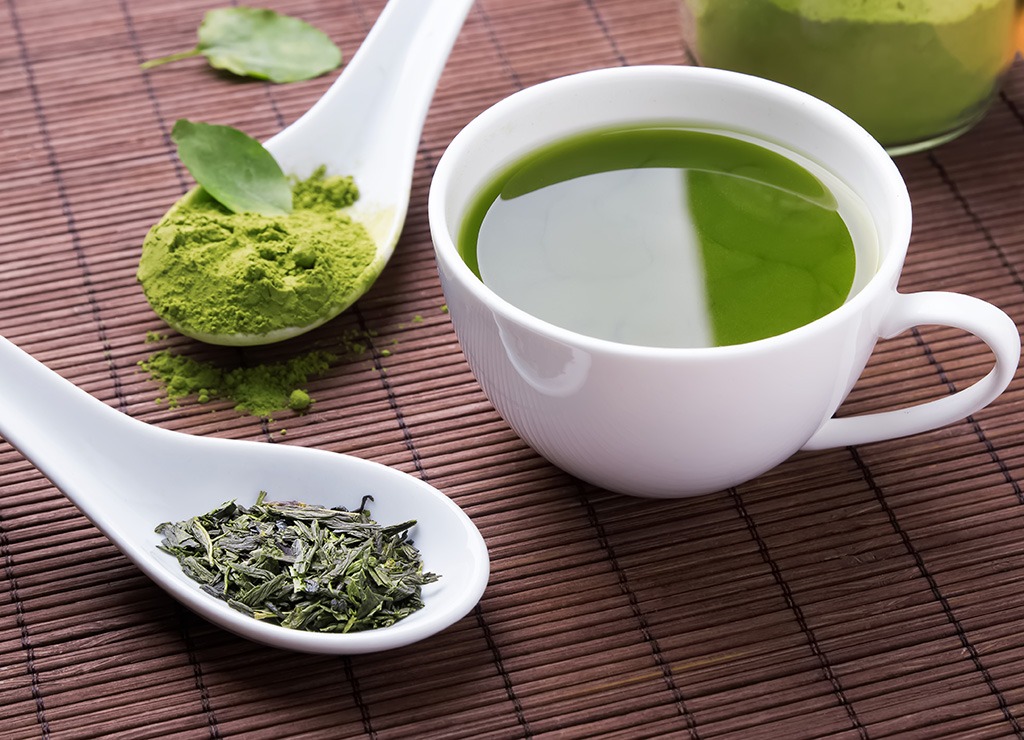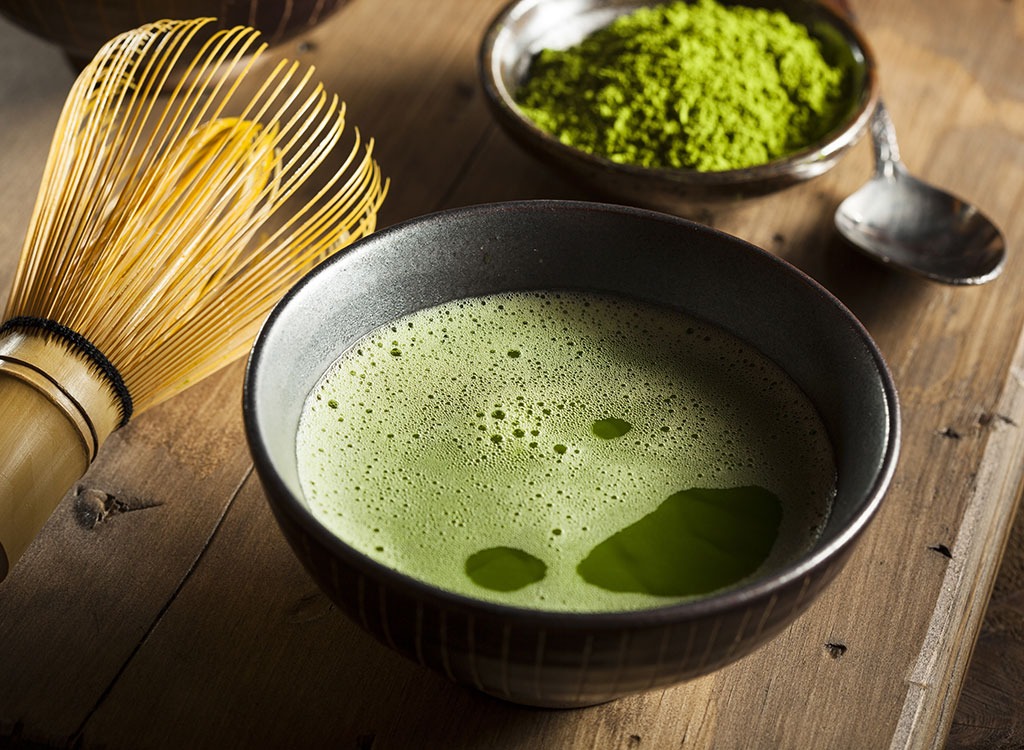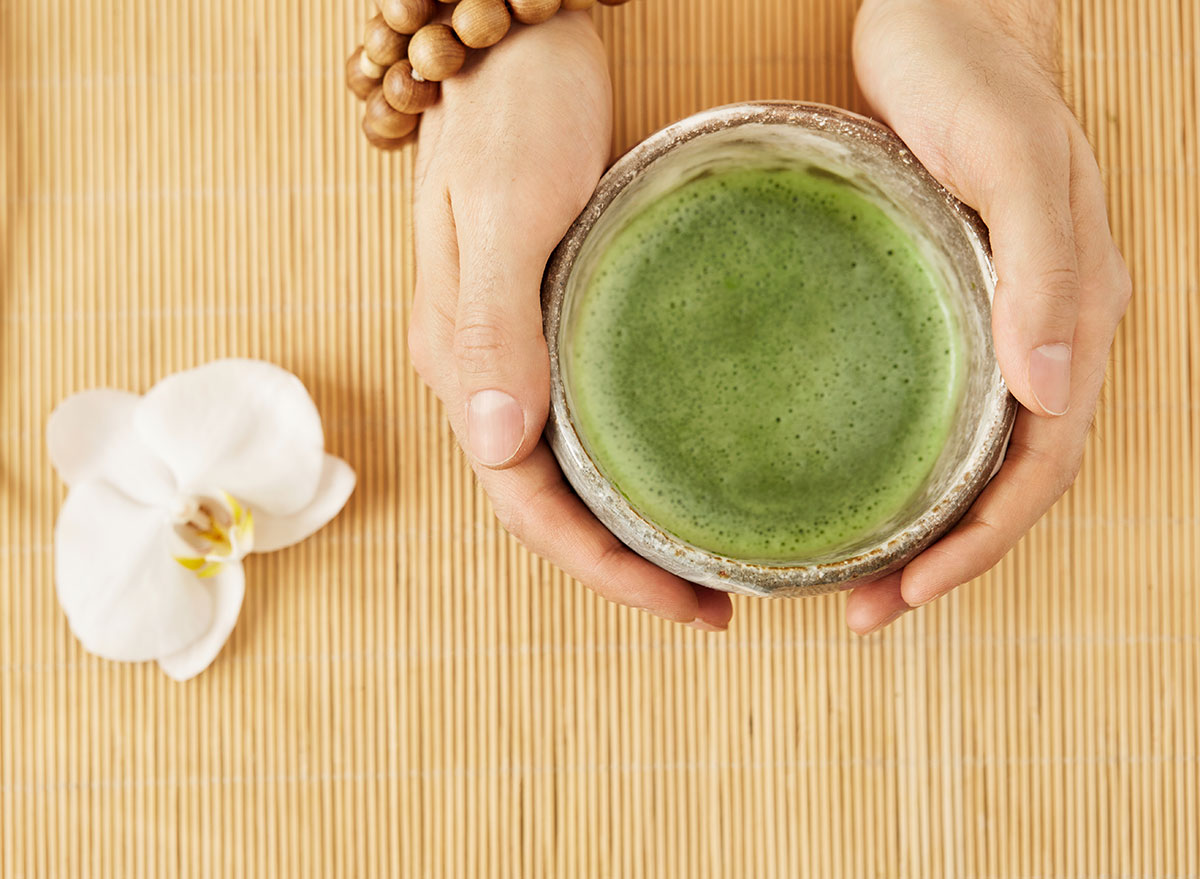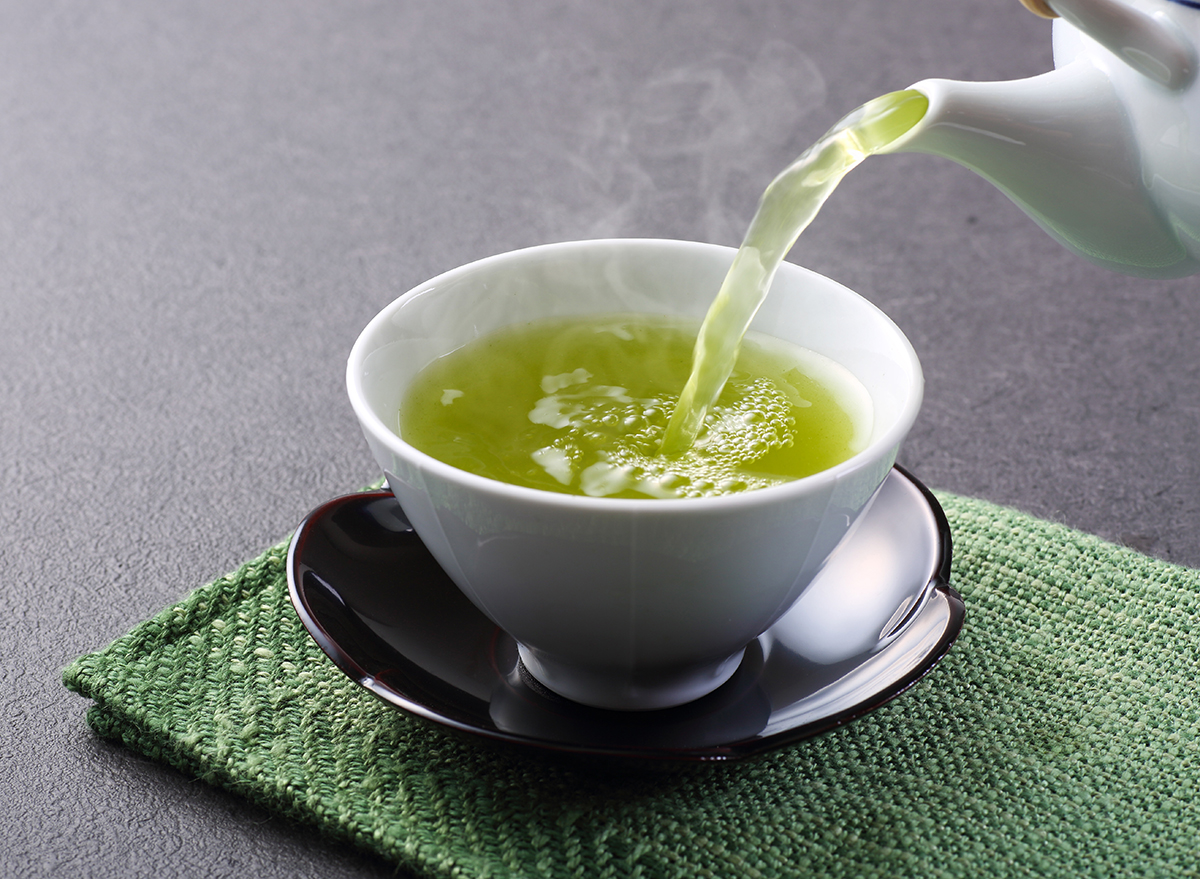what does lipton green tea do to your body
Tea is one of the most popular beverages enjoyed worldwide.
Whether yous enjoy green, blackness, or oolong, all 3 come from the same Camellia sinensis plant. When producing green tea, tea leaves are immediately steamed to forestall fermentation to proceed the tea leaves light-green. For millennia, Eastern medicine has recommended green tea for its wellness benefits. Now, modern-solar day enquiry is proving the myriad ways greenish tea improves health and well-being—from reducing torso fatty and blood sugar levels to boosting encephalon health. Read on for all the incredible ways drinking green tea can support your health, and for more than on healthy eating, don't miss vii Healthiest Foods to Swallow Correct Now.

One of the nearly documented benefits of green tea is its anti-cancer properties. More 5,000 studies have been published about greenish tea and cancer, including human clinical trials, population-based studies, and laboratory analyses. Thousands of these studies document that green tea polyphenols and other bioactive compounds nowadays in dark-green tea may help preclude several types of cancer including breast, lung, colon, esophagus, oral fissure, stomach, small intestine, kidney, and pancreas.
According to Katherine Brooking MS, RD, a New York-based registered dietitian, "several population-based studies suggest that both green and black teas help protect against cancer. Several preliminary clinical studies suggest that the polyphenols in tea—particularly epigallocatechin gallate (EGCG)—may play an important role in the prevention of cancer. Researchers too believe that polyphenols assist kill cancerous cells and they may protect healthy cells from cancer-causing hazards," notes Brooking.
RELATED: Sign upwards for our newsletter to go daily recipes and nutrient news in your inbox!

As the non-fermented course of tea, greenish tea provides more of the benign catechins than either blackness or oolong tea, co-ordinate to a review paper published in the Journal of the American College of Nutrition. Catechins are a sub-category of flavonoids that are found in loftier concentration naturally in the leaves of the Camellia sinensis plant. There are four main catechins in tea: epicatechin (EC), epicatechin-iii-gallate (ECG), epigallocatechin (EGC), and epigallocatechin-iii-gallate (EGCG). Of these catechins, EGCG and EGC are found in the highest concentration in light-green tea and have been the field of study of most of the studies. Antioxidant catechins are also present in other healthy constitute-based foods like apples, berries, and cacao.

If you're looking for means to keep your encephalon precipitous as you age, consider adding green tea to your diet. In one published randomized, double-blind human clinical trial published in Journal of Medicinal Nutrient, participants who took a daily supplement with green tea extract and L-theanine extracted from tea experienced improvements in balmy cerebral impairments. In a test of attention and self-reported measure of alertness, retentiveness improved afterwards tea as compared to the placebo. Besides drinking dark-green tea, you can too improve your cognitive functioning with these thirteen Healthy Foods That Boost Your Memory, According to Nutritionists.

Numerous studies reveal that green tea helps reduce fasting blood sugar levels and hazard for developing blazon 2 diabetes. Green tea besides has been shown to help increase insulin sensitivity, so that the insulin your pancreas produces tin can more efficiently maintain normal blood saccharide levels. Dark-green tea helps protect the cells that produce insulin, and the flavonoids in tea tin can help mop upwardly harmful gratuitous radicals and tamp down inflammation. These benefits are all helpful to aid foreclose type 2 diabetes likewise as reduce complications from diabetes similar diabetic retinopathy, co-ordinate to a review commodity published in the journal Antioxidants.

Dark-green tea is a superstar when it comes to heart health, explains Eat This, Not That! Medical Expert Board members and Manhattan-based registered dietitians Lyssie Lakatos, RDN, and Tammy Lakatos Shames, RDN, known as The Nutrition Twins. "The polyphenolic catechins establish in green tea have been found to improve total and LDL (bad) cholesterol levels, which are two risk major factors for heart disease."
In a landmark population-based study reported in JAMA with more than than twoscore,000 Japanese adults followed for more than eleven years, the results reported that drinking more than 5 cups of green tea daily lowered the take chances of death of a center attack or stroke by 26%, compared to subjects who reported drinking less than a cup per twenty-four hour period of greenish tea. Another report published in the European Journal of Preventive Cardiology institute that drinking green tea iii or more times a week can significantly amend your overall centre health, as tin can these 17 Healthy Eating Habits To Start Today, According To Our Medical Experts.

While coffee provides a kick of caffeine to heave your day, the caffeine and other bioactive compounds in light-green tea can get you going without making you lot experience wired. According to registered dietitian Sarah Koszyk, MA, RDN, co-founder of MIJA and author of 365 Snacks for Every Solar day of the Year, "Green tea contains the amino acid, L-theanine, which provides a calm focus and works with the caffeine within light-green tea to provide a ho-hum release that doesn't cause withdrawals or spikes and crashes that one can experience from regular caffeine found in coffee."
Light-green tea can provide a more relaxing experience with less dependency, compared to drinking coffee. L-theanine can also reduce anxiety past increasing the product of dopamine in the brain, thus improving one's mental health and assuasive people to unwind from stress, she adds.
READ More: Downsides of Drinking Coffee Every Day

Many of the documented health benefits of green, black, or oolong tea are linked to the flavonoids present in tea leaves. A recently published study in the journal Advances in Nutrition reported that daily flavonoid intake from tea was associated with reduced risk for death from heart disease and any crusade of death.
According to Joy Dubost, PhD, RD, Head of Nutrition & Health at Lipton, "Flavonoids are naturally occurring dietary compounds in tea which accept been associated with heart health. Daily consumption of at to the lowest degree 200-500 milligrams of flavonoids, found in 2-3 cups of tea, tin help support a healthy centre as part of a nutrition consistent with the Dietary Guidelines for Americans." For more ways to protect your heart, consider giving up these 5 Drinks That May Pb to a Heart Attack, Co-ordinate to Science.
Source: https://www.eatthis.com/what-happens-drink-green-tea/
0 Response to "what does lipton green tea do to your body"
Post a Comment